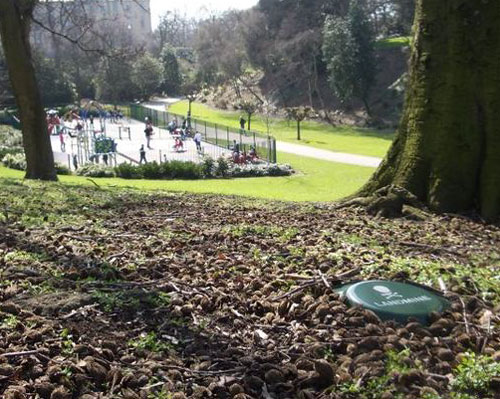If we ignore the nationalistic/romantic ramblings of some deranged people there is a consensus that war is not a good thing. Certain wars (unfortunately not all) get a great deal of media attention – which may lead to popular cries for peace. â??Secretâ?? or unpublicized wars are harder to end.
The end of war is naturally worth working for. But it also brings with it a loss of interest in the region and the people involved. This is natural since most people (me included) tend to see the end of fighting as the solution. Naturally there is a need for reconciliation and rebuilding but thatâ??s about it.
But, this complacent attitude of mine was too be rudely disturbed when I came across the term â??iron harvestâ??.
The term is used by farmers in Belgium and France to describe the yearly amount of WWI ordinance found while plowing their fields. It’s more than 80 years since the war ended and still enough war garbage appears to motivate a term of its own. â??The French Département du Déminage recover about 900 tons of unexploded munitions every year. Since 1945, approximately 630 French démineurs have died handling unexploded munitions.â?? (Wikipedia)
But naturally the problems do not stop with an old war. As recently as 2006 the conflict between Israel and the Hezbollah in Lebanon resulted in up to one million unexploded cluster bombs (BBC News). Estimates made by U.N. officials indicate that 90 of all cluster bombs used were launched during the last 72 hours of the conflict (Washington Post)
These small lethal bombs are left lying about in fields and in ruins. This slows the pace of economic and social recovery since the fields are too dangerous to use and rebuilding takes much longer. Not to mention all the accidental casualties and fatalities which occur when people come into contact with these lethal bombs.
Theoretically such ordinance should be easily prohibited by the present rules of war but unfortunately they are not. Therefore special legislation is required. Belgium has gone the furthest among countries and banned cluster bombs completely. Other countries are also working towards this goal.
Replying to questions in Parliament, the Swedish Minister of Defence (December 2006) has stated the governments is going to play an active role in international work against cluster bombs including working for an international ban and actively participated in the coming Norwegian conference on banning cluster bombs. The minister also stated that he was going to do away with Swedenâ??s supply of a (all?) cluster bombs (bombkapsel 90), create a Swedish ban on cluster bombs, and stop the production of bombkapsel 90 for the Swedish JAS 39 Gripen fighter.
Lets hope he keeps his promise.
Unsurprisingly, the UK and US are for cluster bombs â?? or rather against the banning of the bombs (great article by Monbiot)
Somewhere behind all the politics there is a designer. Once again we need to ask â?? what kind of mind designs technology like this? After a hard day at the drawing board does he or she go home to his family and smile? What will he/she till his/her children when they ask what he does? â??Daddy designs bombs which kill childrenâ??
I donâ??t think soâ?¦

